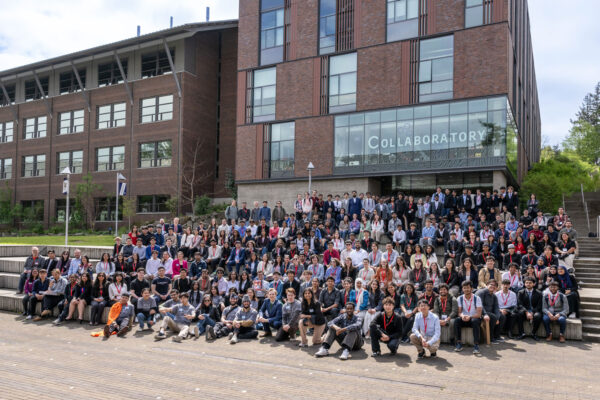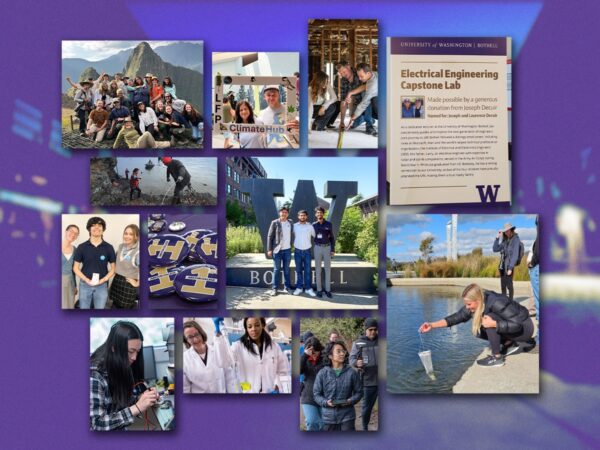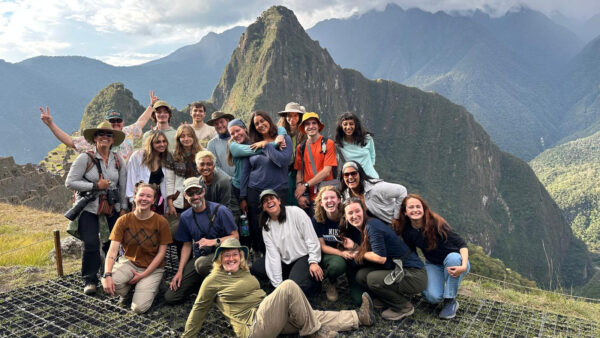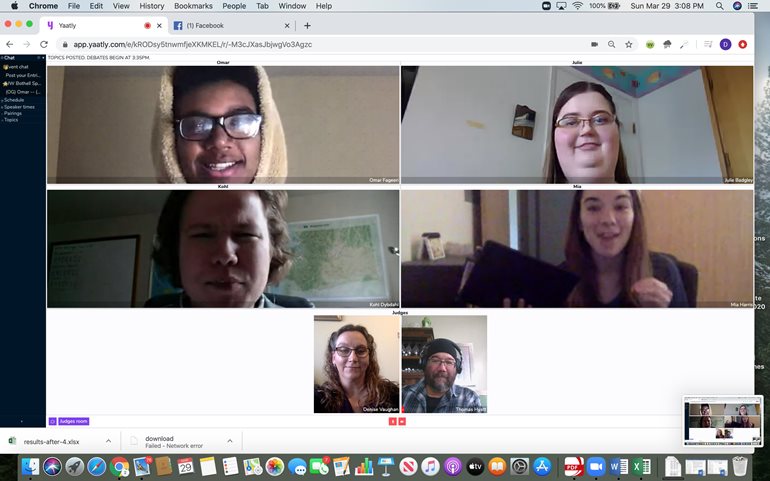
If things had gone as planned, the University of Washington Bothell Speech and Debate Team would have spent the last weekend in March at a national competition in San Diego. Of course, that didn’t happen due to the coronavirus pandemic, but students still debated — while keeping their social distance.
Denise Vaughan, the team coach, and Jim Hanson, the debate team coach at Seattle University, organized the Online IPDA Championships. IPDA refers to the International Public Debate Association and a style that emphasizes public speaking and persuasion skills.
“We basically put together a national tournament in less than two weeks,” said Vaughan, an affiliate instructor in UW Bothell’s School of Interdisciplinary Arts & Sciences.
Despite the change in format, UW Bothell won the Novice Division competition as a team, and several members won individual awards.
Division and individual winners
The team is a UW Bothell student club. Many of the students take two related University courses: Introduction to Debate and Taskforce in Debate.
Six students from UW Bothell competed with students from more than a dozen colleges from Florida to Alaska over the March 28-29 weekend, using the platform yaatly.com. Yaatly, which means “to speak” in Navajo (Dine), was originally developed to connect teams who may not be able to travel or compete due to cost or geographic reasons.
The competitors included Julie Badgley (Law, Economics & Public Policy ’20), Sarah Cordova (Society, Ethics & Human Behavior ’20), Kohl Dybdahl (Media & Communications Studies ’20), Mia Harris (Law, Economics & Public Policy and Media & Communications Studies ’21) and Tim Ice (Media & Communications Studies ’22).
Ice tied for first in the Novice Division and Dybdahl took third place. Cordova was sixth in the Open Division. Badgley went to the quarter finals (top eight debaters) in the Junior Division.
Gathering in virtual debate rooms
The tournament was hosted by Hanson, the executive director of Climb the Mountain Speech and Debate Foundation, a nonprofit dedicated to making speech and debate an opportunity for all students at all schools.
The yaatly platform provides event information and gives each team a virtual room where they can meet and talk. Each debate also has a separate virtual room where opponents — the affirmative and negative sides — can see and hear each other as judges observe.
In each debate, the two competing students first selected a debate proposition from one of five topics. Then they had less than a half-hour to prepare. The back-and-forth debates each lasted about 20 minutes. At the end, judges named the winner, explaining where arguments were strong or unpersuasive.
Over the two days of the championship, students went through five rounds of debate and four elimination rounds.
Between rounds, UW Bothell students met in their team room to confer with Vaughan who offered tips and strategies.
One bit of advice was for students to put themselves in the best light possible — literally and figuratively — as they spoke into laptops and desktop computers from their homes. Remember to thank their opponents and the judges, she said. “Make the best possible impression.”
Experience competing one-to-one
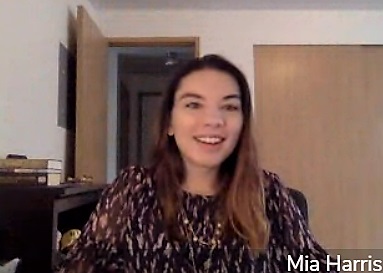
In one opening round debate, Harris, speaking from her Bothell apartment, met a student from Santa Monica College. They chose the proposition: “The United States should decriminalize the possession and use of nearly all drugs.”
The Santa Monica student had the affirmative side of the debate and Harris the negative. In her few minutes to prepare, Harris looked up information while, in a separate chat, her teammates suggested links.
The debaters then took their turns, as if they were in the same room, making their points and rebutting the opponent’s points. After the debate, Harris returned to the UW Bothell room where she reviewed the judging with Vaughan, who offered her own feedback and insights. Harris’ teammates also shared their own experiences and strategies.
Reflecting on the tournament later, Harris said she was grateful for the opportunity to debate others across the United States. The debate also demonstrated how students can adjust to new learning methods, Harris said.
“Being able to connect one-on-one with other students helped relieve a lot of stress,” she said.
“This tournament in my book was a huge success for our team because not only were we able to win in the Novice Division,” said Harris, “but we had the chance to reconnect while debating.”
Harris, who is vice president of the team, says she plans to continue as a debate judge after graduating.
The power of teamwork
There were a few technical difficulties with people having low connectivity at their homes, Vaughan said, but overall the tournament went well and coaches and students liked having a chance to compete.
“The trip to nationals is the pinnacle to our year and part of that is the time together as a team working toward a goal,” said Vaughan, who praised the way the members backed each other as individual competitors.
“When Tim went to semifinals, every other member of the team was there, looking facts up on the internet, providing little tips about how to address a specific issue, and telling him he was going to do well,” she said. “Then most of them went to watch him debate and sent me text messages about how he was doing. The whole group was invested.”
Even losing a round is a valuable experience, Vaughan said. “I love that they pick each other up and defend one another. It’s amazing learning, too, because they have to shake off disappointment and go right back into another debate round.
“That’s resilience,” she said.
Vaughan hopes online debates will grow and possibly include teams in other countries, overcoming isolation as the spring break tournament demonstrated.
“This was a great weekend.”
The debate attracted entries from around the country:
Florida State University
Kansas City Kansas Community College
Idaho State University
Lower Columbia College
Modesto College
Murray State
Otterbein University
Santa Monica College
Seattle University
University of Alaska at Anchorage
University of Montana
University of North Georgia
Utah State University
